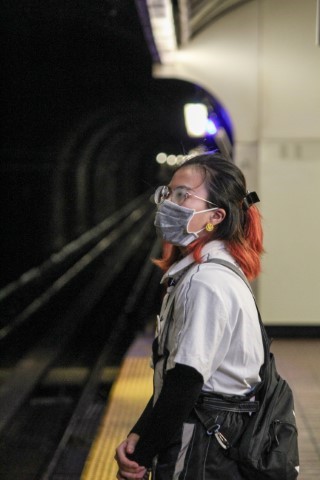
Facemasks not effective for stopping spread of viruses
By Craig Allan, Staff Writer
As the fear of the coronavirus spreads throughout the world, people are looking for any way to protect themselves. One popular option is wearing a facemask—the kind typically worn by surgeons—to avoid breathing in any possible illness inducing bacteria (like what might cause coronavirus). They have become the go-to as a preventative measure; so much so that stores from Toronto to Vancouver (and even Winnipeg!) are selling out, but many experts say no matter what kind of mask is worn, it will not protect from any illness, let alone the coronavirus.
First off, it is not known with exact certainty how the coronavirus is spread—although person-to-person is the most frequent mode of illness spread. Second, surgical facemasks were not designed to protect people from diseases. Their purpose is to act as a barrier for when a surgeon is operating. A barrier to prevent any germs from the surgeon getting into the operating patient, and additionally to prevent any bodily fluids that may squirt out of the body cavity from getting into the surgeons’ mouth.
There is a commercial facemask called an N95, which is commonly used by people in the construction industry to ward off dust and noxious fumes. That mask could be a better alternative for warding off diseases, yet it is not likely to be seen in public due to the fact that they need to be specifically fitted to a person, and need to be changed frequently.
The proliferation of facemasks being worn by people who are trying to prevent themselves from getting sick may seem harmless, but in times when an outbreak of a virus is occurring, experts say the stocking up on facemasks could actually do more harm than good. Because individuals are buying a large amount of the mask supply, medical institutions may find it difficult to get facemasks for their facilities, leading to more hazardous conditions in their practice.
The spread of the coronavirus was not the beginning of the facemask trend. Its reason for becoming so prevalent takes its roots from Asia—specifically Japan. Facemasks began to be popular in Japan during the twentieth century, due to various conditions like the 1923 Great Kanto Earthquake, global flu epidemics, and the growing industrialization of the country leading to more pollution in the air. They are now so prominent that the Japanese have even taken to designing and customizing their masks to show off the wearer’s individuality. In some cases, the masks are not even worn for hygiene reasons, as Japanese women wear them to avoid harassment on transit.
When it comes to protecting yourself against any disease including coronavirus, the facemask is not the answer. The best way to prevent the virus is to wash ones hands, sneeze away from people, and avoiding the touching of eyes, mouths, or any other open orifices with unwashed hands. Leave the masks for the medical professionals.


